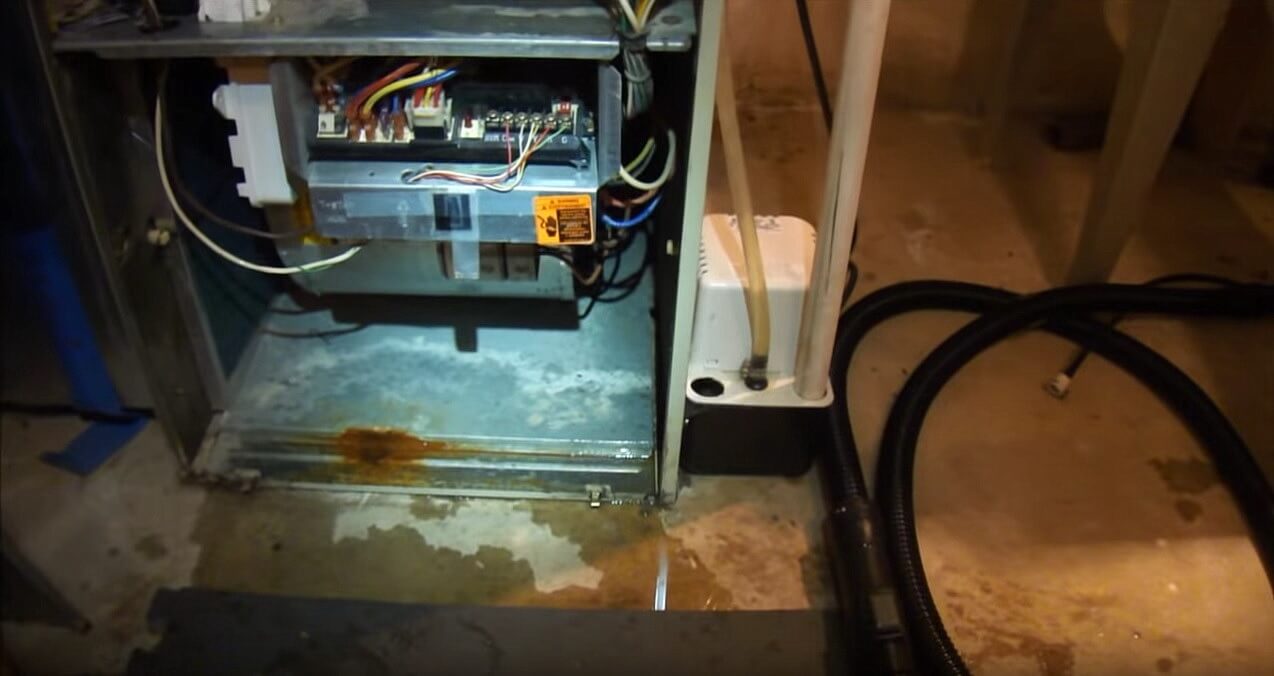
How to Prevent Your Furnace from Leakage
Water leaks in any part of the home can be frustrating, but a furnace leaking water is even more dangerous. It is usually a sign of a more serious problem that can be too costly and time-consuming for furnace repair. The most common sign that a furnace is leaking is pooling water near the appliance, and it can be a result of various reasons. Therefore, attempting a DIY approach is the last thing homeowners should do, but you should still understand the possible cause of the problem.
How to handle a leaking furnace
Finding out why there is water in the furnace is the first step in preventing similar problems in future. The diagnosis will differ depending on the type of furnace and other essential contributory factors, but it will help you understand what is causing the problem.
The type of furnace
High-efficiency furnaces: Furnaces of this type have an AFUE of at least 90, making them better than conventional ones. The way heat exchange happens in them usually leads to condensation, but the water is drained through the drain trap and condensate line. If these components become damaged or degenerate and a hole develops, water may start pooling next to the furnace, or it could start blowing cold air.
A dysfunctional condensate pump could be another reason for a high-efficiency leaking furnace. Its role is to pump water into the condensate line to be redirected away from the furnace. If it does not work, water will not be drained as it should, resulting in leaks. Clogging in the drains and condensation tubing are other possible causes of leaks in these furnaces.
Conventional or traditional furnaces: Furnaces with AFUE ratings lower than 90 are in the traditional category and are likely to leak when they have the wrong size of the vent pipe. They are usually made with a metal exhaust vent pipe responsible for transporting gases produced during combustion. The gases should be disposed of while they are still hot, which is why the right size pipes are crucial. Smaller pipes will trap the gases, which results in cooling, condensation, and liquid formation that eventually leaks.
Other causes
Clogged humidifier: Most people prefer to have humidifiers in addition to the HVAC unit, especially in winter when more time is spent indoors and the air becomes dryer. Since these appliances rely on water to function, they may become clogged and cause leaks that may seem like they are from the furnace. An inspection of the humidifier during the furnace inspection should determine which, between them, is causing the problem.
Air conditioner issues: A furnace leaking water when AC is on could also signify that the air conditioner is faulty, not the furnace. This is possible because most homes use AC and furnaces interchangeably. A professional will determine the root cause of the problem and fix it.
Poorly installed fuel pipe: The fuel pipe is typically present in all types of furnaces. It is responsible for driving byproducts of combustion, mainly vapour and carbon dioxide, from home. If the fuel pipe is not angled enough or is the wrong size, the vapour will remain within the pipes for longer, condense and result in water in the furnace. Such leaks mostly happen in the attic.
Internal drain clog: In most cases, air conditioners and furnaces share the same drain in homes. If the drain system becomes damaged, too much water may end up in the furnace water pump, causing leakages. This is usually very rare because most people do not use the air conditioner and the furnace at the same time. However, it is still a possible cause that your HVAC professional will consider when they come to repair the leak.
After determining the cause of the problem:
- Turn off your furnace and call your professional service provider.
- Adjust the thermostat to the OFF position, then close the gas line valve.
- Switch off the breaker for the furnace from the electrical box also.
- Dry off the water and wait for the contractor.
Air Makers offers emergency HVAC contractor services, and we’re available whenever you require our services. You can also call us for maintenance services to ensure the furnace, air conditioner, and humidifier do not leak in the future.
-
Main Showroom and HQ
-
Air Makers' Toronto Office
-
Air Makers' Brampton Office
-
Air Makers Warehouse #2
